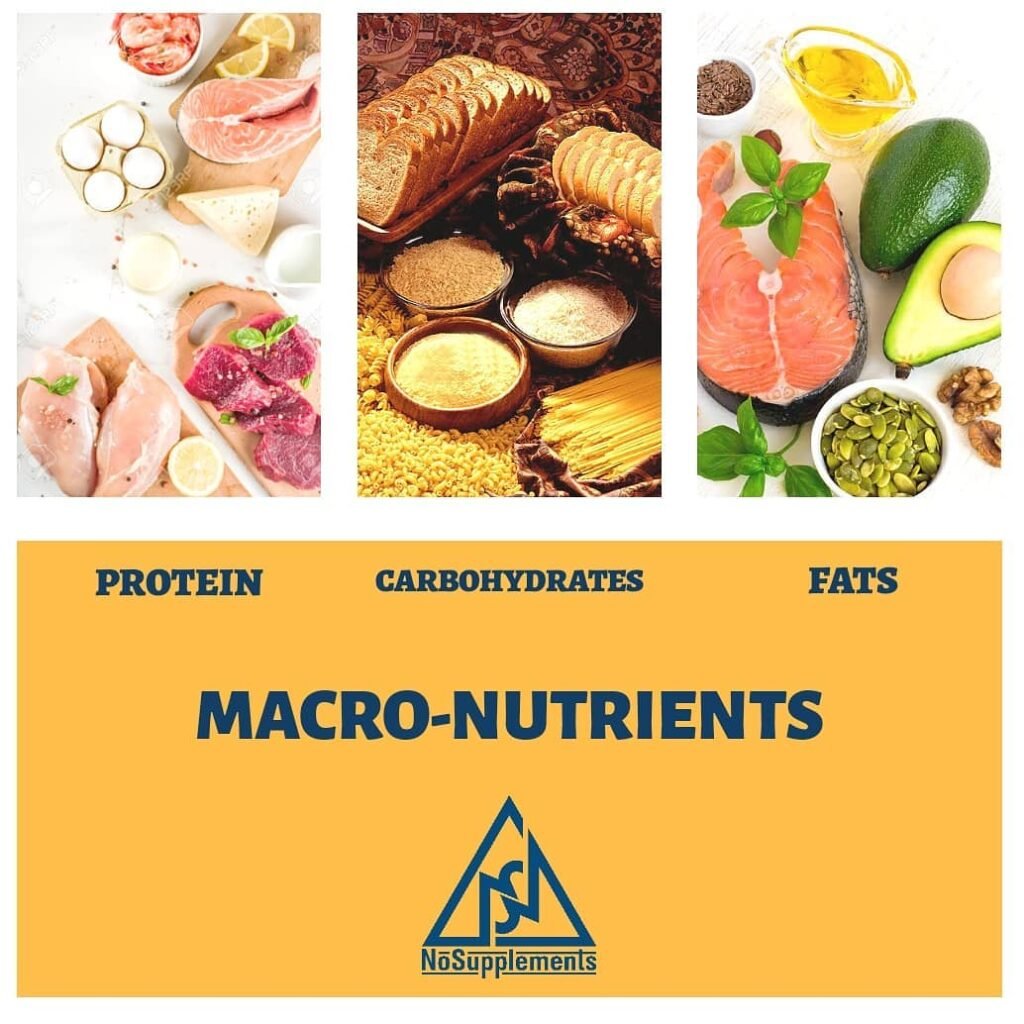Let’s talk about Macronutrients:
PROTEIN
Protein is a crucial macronutrient for the human body. Proteins serve as a building block of the body tissues & organs.
As fuel, proteins provide same energy as carbohydrates: 4 kcal per gram.
Amino acids are the elementary blocks of protein. Our bodies can produce some amino acids which are called non-essential amino acids, but not others, so those essential amino acids have to come from the food you eat.
There are two types of protein:
Animal protein : Animal proteins are complete sources of protein which means they contain all the essential amino acids. Examples are chicken, eggs and milk.
Plant protein : Plant proteins are often, but not always, incomplete sources of protein as they do not contain all the essential amino acids. Examples are soy, lentils and quinoa.
CARBOHYDRATE
Carbohydrates act as the primary fuel source for our body as well as our brain.
Carbs are broken down by the body into glucose which is the primary fuel that circulates in our blood at all times. It’s also the principle fuel for the brain.
As fuel they provide the same as energy as protein, i.e. 4 kcal per gram.
There are 3 types of Carbohydrates:
Sugars : They are also called simple carbohydrates because they are in the most basic form. Naturally occurring sugars are found in fruits, vegetables and milk. It is also artificially added to prepare candies, desserts and soft drinks. If you are looking for an instant source of energy then sugars can be a good option. However, consuming too much of them can lead you to cravings and overeating.
Starches : These are also known as complex carbohydrates because they are made up of lots of simple sugars strung together. Your digestive system takes time to break starches down into sugars before they can be used for energy. Starches include bread, rice and pasta. They also include certain vegetables like potatoes, peas, and corn. In general, majority of your carb intake should be coming from starches which help you achieve sustained energy levels,
Dietary Fiber : It is also a complex carbohydrate. Your body cannot break down most fibers, so eating foods with fiber can help you feel full which in turn makes you less likely to overeat. Diets high in fiber have other health benefits too such as preventing constipation and lowering blood sugar levels. Soluble fiber dissolves into water in our body, whereas insoluble cannot dissolve and thus is excreted out in the form it is consumed. Fiber is found in mainly foods that come from plants, including fruits, vegetables and whole grains.
FAT
Fats : Fats are also called ‘fatty acids’ or ‘lipids’. Fat acts as an energy reservoir for your body, along with performing other vital functions such as protecting your organs, supporting cell growth and helps your body absorb vital nutrients.
As fuel, fats provide more than double the energy of what the other two macros provide, i.e. 9 kcal per gram.
Saturated Fat : Need to be consumed in moderation, it is found in lamb, butter and cheese.
Trans Fat : Trans fat will raise your cholesterol, so consume as little trans fat as possible. It is found mostly in processed & fried foods such as doughnuts and chips.
Unsaturated Fat : Majority of your fat intake should come from this kind of fat in order to keep your health in check. It is further divided into types, i.e. monounsaturated which is found in nuts & avocados, and polyunsaturated fat found in salmon & walnuts.
Alcohol is technically a fourth macronutrient and contains 7 kcal per gram, but because it isn’t essential for survival it’s not usually mentioned with the other macros : protein, fat, and carbs.
For more genuine content on how to achieve your fitness goals without supplements, follow us on Instagram : https://www.instagram.com/nosupplements/

